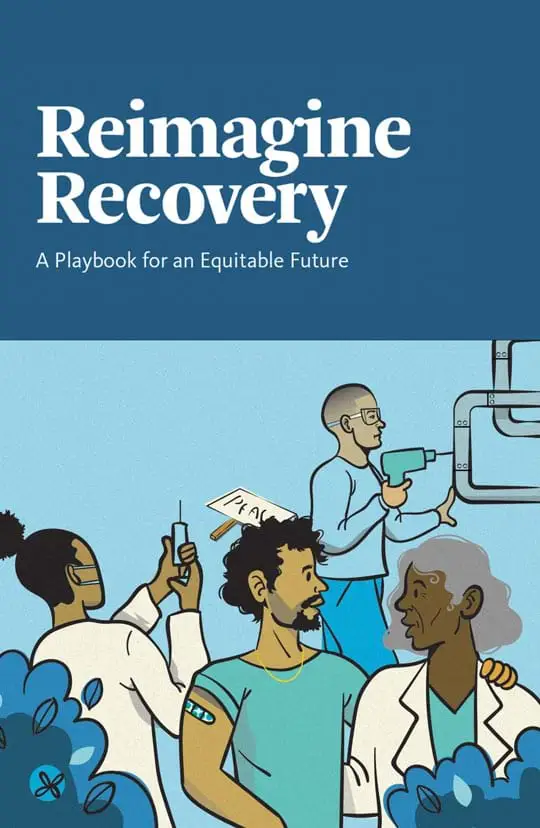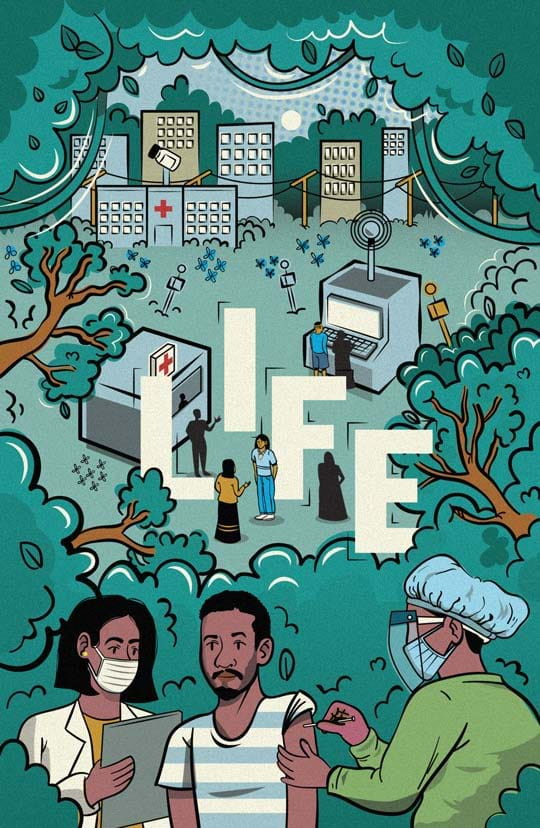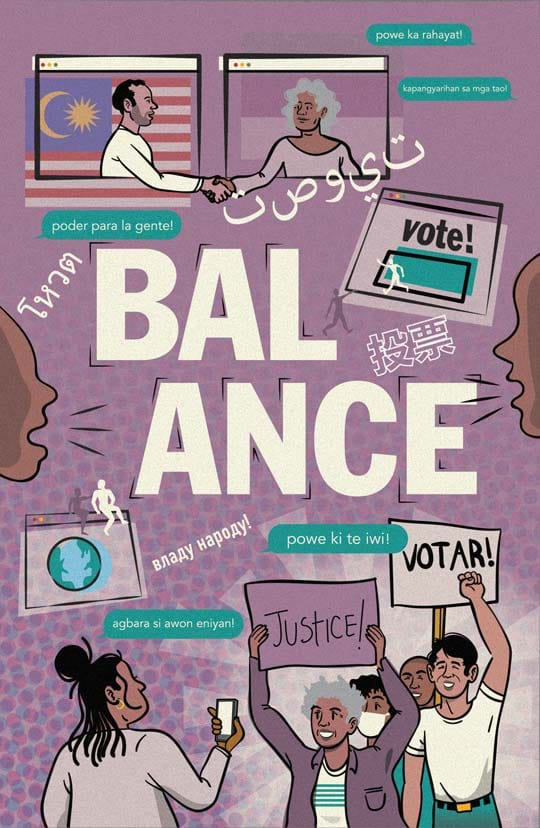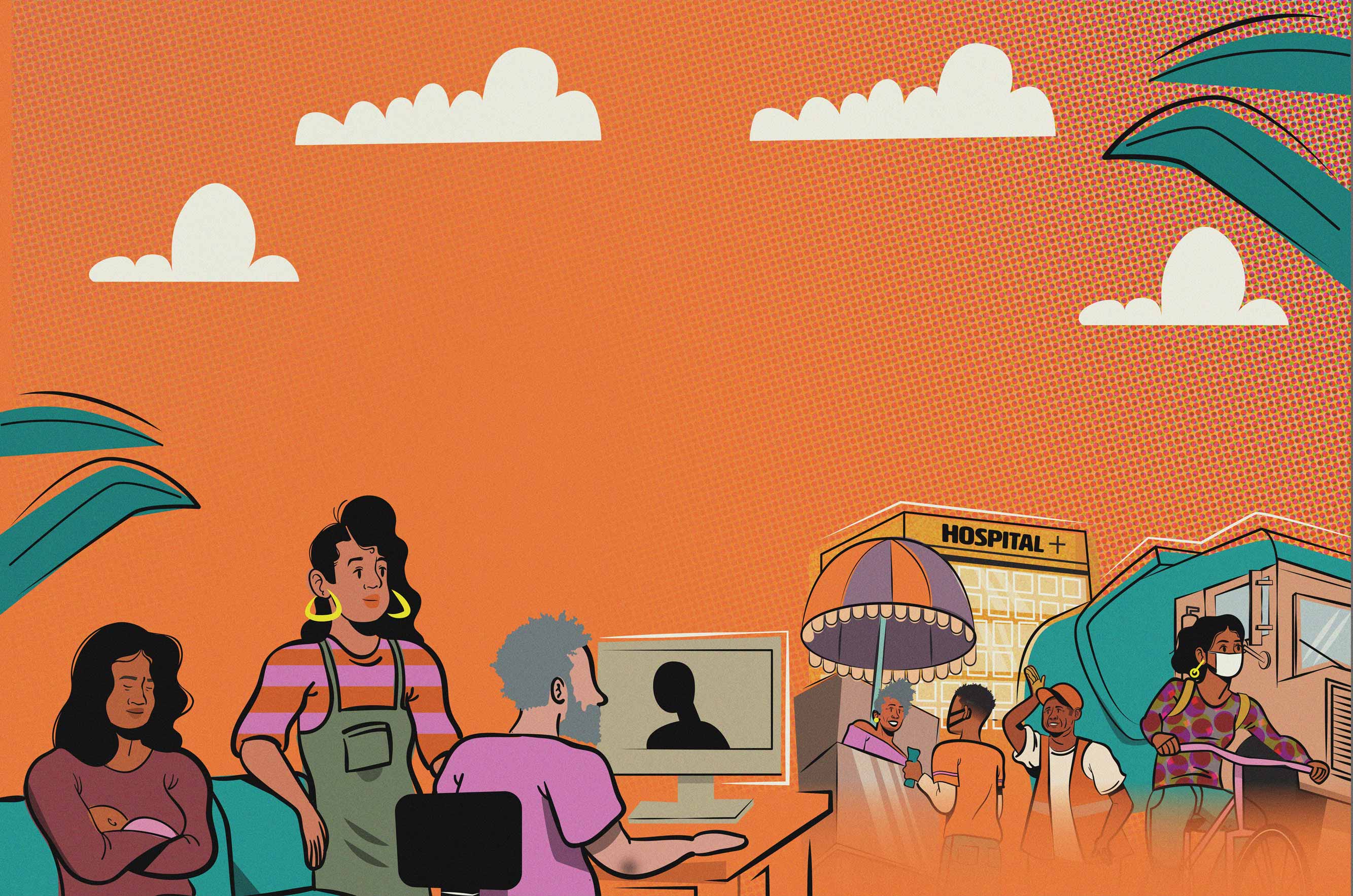
Reimagine
Work
The scale of the economic challenge wrought by COVID-19 is catastrophic—and one the world hasn’t faced in a century. As the pandemic magnifies the cracks in our broken economic systems, it’s accelerating a long overdue reckoning about the future of work and our economy at large. For far too long, we, as a global society, have relied on an unsustainable way of working and business norms that maximize the wealth of the powerful and privileged, enabling an unbridled form of capitalism that has deepened inequality and reduced the power of working people.
Over the last few decades, corporations and governments have diminished worker power with stagnant, unfair wages, declining benefits, little to no social protections, and obstacles to unionization. More than half the global workforce operates without a formal contract or arrangement and vital protections such as health care, sick leave and child care, while 8% of workers live in extreme poverty. Without a social safety net, workers—particularly low-wage workers, immigrants, people of color, women and the disabled—have had little choice but to risk their lives, leading to increased exposure to poverty and COVID-19. Women, largely women of color, experienced a landmark departure from the global workforce, with 2.2 million out in the U.S. alone due to broken care systems.
In the face of these conditions, we’ve witnessed a historic act of refusal by workers, who are no longer accepting below standard wages and protections and calling for a more just economy. As the world re-emerges from COVID, we have a historic opportunity to build a global economy that works for all. By strengthening the rights of workers, investing in quality jobs at every level, and providing paths for historically excluded communities to play more meaningful roles in the economy, we can create truly inclusive economic systems and ensure everyone has an opportunity to prosper.

Make work more inclusive
To ensure equality of opportunity, all people—regardless of their ability, gender, race, or background—must have access to promising jobs with the possibility of growth, instead of being forced to accept low-paying positions without the benefits and protections they deserve.
While women make up half of the global population, only 47% are part of the workforce, compared to 72% of men. For those women who do work, they tend to be overrepresented in vulnerable, low-paying and undervalued occupations. Roughly 58% of working women worldwide engage in informal employment with few prospects or protections, a figure that rises to 92% in the Global South. Opening up more opportunities for women can add up to $12 trillion to the global economy by 2025, but we need to support their growth by pushing for equal pay, eliminating discrimination and barriers to quality jobs, and providing them with the safeguards that keep them—and their jobs—protected during crises like COVID-19.
Spotlight
The Justice and Mobility Fund, a $250 million effort led by Ford and a number of philanthropies, is helping organizations like the Vera Institute for Justice and Center for Employment Opportunities (CEO) scale solutions that will create economic opportunities for the millions ensnared by America’s criminal justice system. At the peak of the pandemic, the fund’s investment in CEO helped provide access to financial resources to 10,000 citizens returning home from prison and jail in 26 cities.
Historically people with disabilities have earned less, experienced a higher rate of unemployment, or have been left out of the workforce entirely. Accommodations such as the option to work from home were out of reach as many employers assumed remote work was unfeasible. Now that the pandemic has turned that thinking on its head, we must tap the incredible potential people with disabilities hold, and provide the benefits and protections they need to thrive. They make up 15% of the world’s population so, without their contributions, we risk our chances at accelerating recovery and building a new economy grounded in equity. Not only do they bring unique perspectives to the table, companies and organizations that champion inclusion outperform their peers, so inclusion needs to be seen as a priority with goals, measurement and accountability.
In the U.S., one in three people with criminal records struggle to access quality work, confronted with hurdles like employer stigma, discriminatory questions on applications, and restrictions on trade licenses. Companies can take immediate steps to be agents of change by adopting and advancing fair chance hiring and supporting skills building and job placement programs, so people with criminal records have a path toward economic mobility.
The benefits of inclusion are many. The sooner companies realize those benefits, unlock opportunities for workers at every level, and recognize those workers as partners, the sooner workers will see themselves as part of the company’s success and invest in its growth—and the growth of the greater economy.
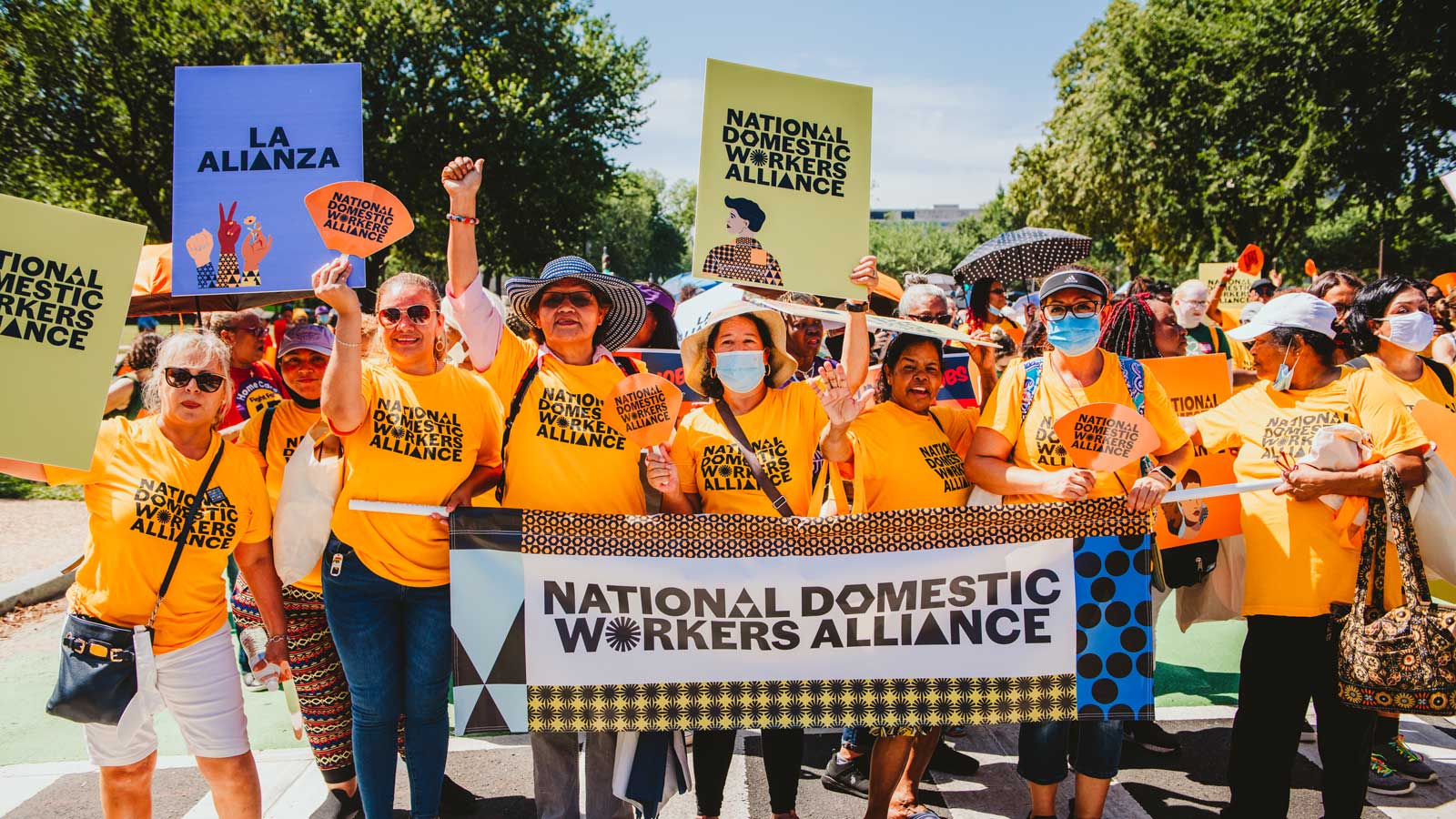
Strengthen rights and protections for workers
All working people must have equal rights to labor protections, access to social protections, and the opportunity to shape the policies and systems that affect their lives. Yet COVID fully exposed the inequalities in workers’ rights and conditions, particularly in the Global South.
The global economy is fueled by informal workers: street vendors, domestic workers, piece-rate workers, day laborers, waste pickers and more. They make up 60% of the world’s workforce—90% in the Global South—yet they have few rights, no benefits or protections, and barely make enough to support their families. Throughout the pandemic, they have been disproportionately exposed not just to the virus, but also to injustice and economic ruin.
For the economy to recover equitably, the collective power of these 2 billion workers needs to grow. On an international level, WIEGO is calling on governments to ensure informal workers, particularly women, are at the center of relief efforts, government assistance and economic stimulus programs. In the U.S., the Families and Workers Fund is reimagining America’s public benefits system with partners in government, business, and the social sector.
Spotlight
Care work makes all other work possible, but the issues around care have been invisible until the pandemic thrust them to the forefront. The National Domestic Workers Alliance (NDWA), Jobs With Justice, and Family Values at Work among others have spent 20-plus years building a movement to support undervalued and underpaid care workers, domestic workers, and home health care aides who are overwhelmingly women, immigrants and people of color. The Care for All with Respect and Equity Fund is helping this movement redefine care in America because care is essential for families and the economy to thrive.
When COVID-19 struck, millions of these workers lost their jobs and, given their informal and often immigrant status, had little to no access to government relief. Within weeks, NDWA launched the Coronavirus Care Fund, raising and distributing over $30 million to 50,000 domestic workers through Alia, the first portable benefits platform. The platform helped NDWA advise over 12 cities and states on relief assistance for excluded workers.
The pandemic has underlined how vital workers, both formal and informal, are to an economic recovery. We must elevate their voices to ensure they have a say in their working conditions, and secure them a seat at the table alongside policymakers and business leaders, so they can be the center of solutions as we plan for the future.

Expand access to capital
Creating an inclusive economy means everyone has access to the capital and financial services they need to thrive. We must reimagine a form of capitalism that prioritizes purpose alongside profit and benefits multiple stakeholders—customers, employees, and communities—alongside shareholders.
For too long, women and other marginalized groups have lacked the resources to meaningfully participate in the modern economy—and the pandemic has only exacerbated the gaps in access. In the U.S., women and people of color control only 1% of the $71 trillion in assets under management. Around the world, billions of people are underserved by traditional financial institutions and lack access to loans and savings opportunities that lead to economic prosperity.
Spotlight
The Connecticut State Treasurer’s Corporate Call to Action, which aims to harness the power of the financial sector in advancing justice, is helping expand access to financial services for low-income communities in the U.S. To date, the Corporate Call to Action has secured commitments from 18 of the world’s leading financial institutions such as UBS, Blackrock and Morgan Stanley to drive $30 billion worth of economic impact for businesses and communities of color, create 10,000 internships and development opportunities for Black and Latinx talent, and support the financial well-being of 30,000 people of color working in service sectors.
At Ford, we have committed $1 billion of our endowment to Mission Investments, an effort to provide capital to the industries and investors who need it the most. By teaming up with organizations like Equity Alliance, Fairview Capital, Illumen Capital, Plexo Capital, and the Black Venture Capital Consortium, we are diversifying the asset management industry, investing in businesses led by women and people of color, and advancing a more inclusive, impactful form of investing.
We need more businesses, investors and industries to recognize that if we create the context and conditions for an inclusive and just economy, the more we can unlock better ideas and outcomes for humankind.
Grantee featured in this big idea
Photography
Center for Employment Opportunities, National Domestic Workers Alliance, Ljubaphoto/Getty Images
Illustration
Justine Allenette Ross
